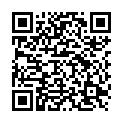|
|
|
| Module code: AGW23.14 |
|
|
4V (4 hours per week, accumulated) |
|
9 |
| Semester: 4 |
| Duration: 2 semester |
| Mandatory course: yes |
Language of instruction:
German |
Assessment:
Examination
[updated 02.12.2025]
|
AGW23.14 (P311-0285, P311-0286) Applied Health Sciences, Bachelor, ASPO 01.10.2023
, semester 4, mandatory course
|
60 class hours (= 45 clock hours) over a 15-week period.
The total student study time is 270 hours (equivalent to 9 ECTS credits).
There are therefore 225 hours available for class preparation and follow-up work and exam preparation.
|
Recommended prerequisites (modules):
AGW23.1 Medical and Nursing Science Principles
AGW23.10 Quantitative and Qualitative Research Methods
AGW23.11 Health and Environment
AGW23.2 Fundamentals of General, Social and Health Psychology
AGW23.3 The Health System
AGW23.4 Social Inequality, Heterogeneity and Social Problems
AGW23.5 Health Sciences
AGW23.6
AGW23.7
AGW23.8 Law and Ethics in Health Care
AGW23.9
[updated 04.12.2025]
|
Recommended as prerequisite for:
AGW23.17
AGW23.18
AGW23.19
[updated 04.12.2025]
|
Module coordinator:
Prof. Dr. Dagmar Renaud |
Lecturer:
Dr. Bärbel Heidtmann
Jessica Joachimsen, M.A.
Dr. Sindy Lautenschläger
[updated 04.12.2025]
|
Learning outcomes:
Module 23.14.1: Care management
Learning outcomes:
After successfully completing this module, students will:
Students will be able to:
be aware of problems related to excessive, insufficient and inadequate care.
be familiar with the subject matter, tasks, central methods and instruments involved in care management.
be able to describe definitions and concepts relevant to integrated care.
be familiar with innovative care models.
be able to explain forms of care and organization in medical service provision.
be able to apply health services research methods.
be able to control care processes.
be able to design transitions in the context of cross-sector care processes.
be able to design recipient-oriented health care through close cooperation between different service providers.
be able to cooperate within formal and informal networks.
be open towards innovative cross-sector care models.
Module 23.14.2: Care and evidence-based practice
Learning outcomes:
After successfully completing this module, students will:
be aware of the relevance of the most important lifestyle-related diseases and chronic illnesses and the resulting demand for pharmaceutical care.
have a basic understanding of the importance of good drug management (impact polypharmacy, vaccinations, drug therapy safety).
be familiar with important drugs and medications.
be able to define define basic terms related to the concept of evidence-based medicine (EBM).
be able to describe the concept of EBM.
be able to explain the importance of so-called best available evidence for decision making.
be familiar with factors that promote and hinder the implementation of an EBM concept.
be able to outline the opportunities and limitations of an EBM concept.
be well-versed in the prerequisites and requirements of evidence-based practice in the fields of health sciences, medicine, nursing and therapy sciences.
be able to describe the different doctor-patient models, highlighting similarities and differences.
be able to describe the shared decision-making process (SDM process).
be able to describe models of conversation used in SDM.
be familiar with the principles, requirements, and providers of evidence-based health information.
be able to critically examine the contents of the Evidence-based health information guideline.
be able to critically examine research findings on health information on the internet, infodemics, and misinformation.
be familiar with the National Action Plan for Health Literacy (Nationaler Aktionsplan Gesundheitskompetenz).
be familiar with patient characteristics that may influence the shared decision-making process.
participate actively in the drug (therapy) safety process
be able to implement processes for the safe handling of medications.
be able to understand the steps involved in evidence-based decision-making based on exemplary examples.
be able to explore the needs and preferences of those affected and incorporate them into evidence-based decision making
be able to apply conversation management models in SDM processes.
be able to distinguish between evidence-based and non-evidence-based health information.
be able to communicate drug-related information in an appropriate manner.
be able to advocate on behalf of vulnerable individuals and groups as stakeholders in health care interventions and programs.
be able to take into account the different perspectives of those involved/affected in joint discourses with their fellow students.
be able to reflect on conversation situations experienced in contacts between doctors and patients.
be able to critically reflect on the claim of being evidence-based in relation to scientific-theoretical and professional-political discourses on EBN, EBM, EBHC or evidence-based prevention and health promotion.
be able to reflect on their own search behavior for health information on the Internet.
develop a critical attitude towards information in the health care system.
[updated 02.12.2025]
|
Module content:
Module 23.14.1: Care management
Challenges/problems of overuse/underuse/ and misuse of health care.
Subject, tasks and methods of health services research
Care trajectories of selected patient populations; e.g., multimorbid, elderly, patients with high utilization of the care system
Methods and instruments of care management and optimization (competition, economy, quality reports, transparency...)
Definitions and concepts of integrated or cross-sector health care
Innovative (cross-sectoral) care models (e.g. dementia care, palliative care and end-of-life care, case management, care services for people with disabilities, etc.)
Design of person-independent care structures in the regional care structure (network level, organized care) with professional and informal forms of assistance (e.g. care management)
Forms of care and organization of medical service provision (e.g. family doctor-centered care, integrated care, medical care centers, DMP)
Module 23.14.2: Care and evidence-based practice
Regulations and principles of medication supply
Overview of aspects of medication supply - system-related
Overview of aspects of medication care - case-based (effect of major medications, medication schedule, interactions, polypharmacy, medications and age (Priscus list), medications and children, medications and the chronically ill
The concept of evidence-based medicine
Possibilities, chances and limits of EBM
Models of the doctor-patient relationship
Shared Decision Making (SDM)
Evidence-based health information
Infodemics and misinformation
Health literacy and patient characteristics in the SDM process
Implementation of the EBM concept in public health care
[updated 02.12.2025]
|
Teaching methods/Media:
Blended learning
[updated 30.10.2023]
|
Recommended or required reading:
Will be announced at the beginning of the module.
[updated 30.10.2023]
|

